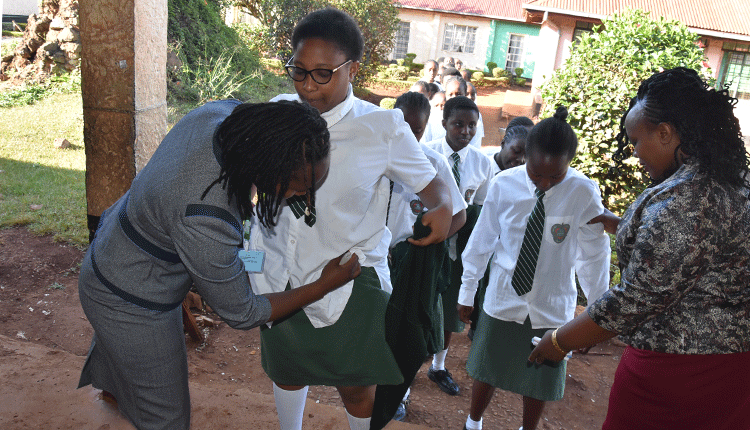Schools rush to register exam centres ahead of set deadline
By Irene Githinji, September 14, 2021Education officials are racing against time to beat tomorrow’s deadline for the registration of the 2021 examination centres.
This is in line with a directive by the Kenya National Examinations Council (Knec) that all centres wishing to host the 2021 Kenya Certificate of Secondary Education (KCSE) and the Kenya Certificate of Primary Education (KCPE) must have a minimum of 30 candidates.
Guidelines by the examinations body, state that the deadline for registering the centres lapses tomorrow. Education officials have, for the last two weeks, burned the midnight oil to complete the registration exercise.
All primary and secondary schools with less than 30 candidates will no longer be registered as examination centres. Instead, they will have to be hosted by bigger exam centres within their localities, the guidelines say.
The new requirement is geared towards ensuring that distribution of examination material is not interfered with by having fewer exam points.
But as the exercise comes to a close, ministry officials are facing challenges, including resistance by some public schools which feel they do not have supporting infrastructure including classrooms and desks to accommodate extra candidates.
“The school head teachers are at a loss on what happens owing to capacity issues. Already, a majority of public schools are full and additional numbers with no supporting infrastructure will pose a big challenge,” an education official who declined to be named said.
Similarly, the question of change of environment for candidates for exam purposes has emerged, with arguments raised that the move may affect their performance in the examinations.
In a circular issued in June, Knec directed that all primary and secondary schools, whether public or private, with less than 30 candidates be hosted by centres of their choice during the exams.
“There will be no registration of new examination centres with less than 30 candidates for both public and private schools.
This policy will not apply to special needs schools, they will be expected to conduct exams at their exam centres,” said the circular dated June 28, 2021.
Knec said that schools with less than 30 candidates and are more than five kilometres away from the nearest exam centre were required to seek special approval from the exam body by mid last month to host tests in their schools.
The host and hosted schools should be located within the same sub-county and served from the same distribution centre.
Knec says the host head teacher will be the one authorised to collect exam materials from the container, coordinate the conduct and return of the candidates answer scripts to the container during each exam day.
Kenya Private Schools Association (KPSA) chief executive Peter Ndoro yesterday said they are still hoping that the situation can be reversed and have schools conduct exams in the current centres.
He said that a parent had filed a case in court to stop the new move by Knec and though KPSA are not party to the suit, they are trying to negotiate so that an out of court settlement can be agreed.
Financial challenge
But as this happens, KPSA has been pushing to have Knec get more resources to conduct exams.
Ndoro said that if Knec is properly facilitated, it would reduce movement of learners from one examination centre to another.
“Hosting of exam centres has been happening over the years but previously, it has been for centres with less than 15 candidates.
The major challenge for Knec is in finances and we are hoping that Parliament will consider adding more funds to the Council in the supplementary budget,” said Ndoro.
A significant number of private schools tend to register relatively lower numbers of candidates compared to public schools.
In mid June, Knec had put the minimum number of candidates in an exam centre at 40 but KPSA protested the decision.
Ndoro termed the decision unfortunate and said it should be reversed amicably, appropriately and in measured actions.
KPSA rejected the proposal in totality and demanded that appropriate steps to engage the ministry and Knec be put in place to reverse the decision.
“We are writing to express our deep concern over the manner in which this decision was made without consulting the key stakeholders.
This is not only an abuse to the doctrine of stakeholder participation as provided for in our Constitution but an attack on private schools aimed at disrupting progress made in expanding access to the provision of quality education in our country,” said Ndoro.
A few weeks later, Knec agreed to review the number from 40 to 30 for any exam centre.
